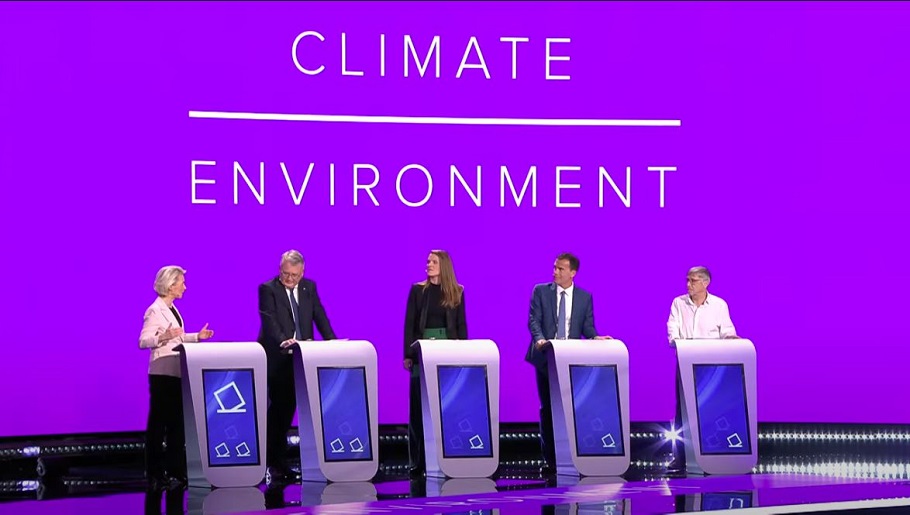Between June 6th and 9th, citizens of the European Union (EU) will define the future of the continent by choosing who will be the next President of the European Commission for the next five years.
The elections have sparked a sense of unease among stakeholders in the eMobility industry, especially those grappling with the various obstacles their states face to accelerate the adoption of electric vehicles (EVs).
Even during the International Mobility Portal Summit, organized by Mobility Portal Europe, a leading figure in the sector expressed: “We are concerned about what will happen after the upcoming European elections.”
“It all hinges on the political will that changes every five years, making long-term planning difficult”, they explained.
To understand each party’s position on driving electromobility forward, it’s necessary to consider the votes cast by parliamentarians in 2022 regarding the EU ban on the sale of new petrol and diesel cars from 2035.
What did each party vote for? Do their promises align with their actions?
Below, Mobility Portal Europe provides a summary of the political landscape of the strongest candidates.
Nicholas Schmit
As a member of the Socialists and Democrats party, the candidate leads thinking towards a “just transition” to ensure that ecological and social progress occur simultaneously.

In fact, in 2022, during a debate, Schmit reportedly stated: “Although this transition to climate neutrality will create opportunities, it will also disrupt our economy and several sectors, impacting our labor markets.”
“The green transition will only succeed if justice, solidarity, and social measures are achieved,” he would add later.
The alliance has expressed that its goal is to align the essential pillars of the Fit for 55 strategy with the EU’s climate target for 2030, ensuring an equitable transition.
During the vote, the majority of party parliamentarians backed the restriction on the sale of combustion vehicles, with 123 votes in favor and only two against.
Sandro Gozi
Representing the Renew Europe Now coalition, comprised of centrist, liberal, and democratic forces, Gozi was chosen as the lead candidate of the three parties.

The alliance stems from the shared campaign platform between the Alliance of Liberals and Democrats for Europe (ALDE), Renaissance, and the European Democratic Party (PDE).
The three factions agreed on “ten common priorities” focusing on investment in research, development, innovation, and human capital, as well as attracting private investment to make Europe more competitive and sustainable.
The party expresses that after dedicating the last five years to establishing rules, it is now crucial to focus on their implementation, ensuring the necessary resources are available, and completing the digital single market.
They argue that otherwise, businesses and citizens will not be able to keep pace.
Similarly, it is noteworthy that sustainable mobility is not mentioned in the letters from the President and the Secretary-General, as well as in the manifesto of the Democrats, from which Sandro Gozi originates.
However, the majority of Renew Europe Now members supported the ban on diesel vehicle offerings, with 78 votes in favor and only 14 against.
Terry Reintke
The Dutch delegate selected by the European Greens is perhaps the aspirant who prioritizes the electrification of numerous sectors, including transportation.
In a document, Reintke proposes crucial measures regarding climate and environmental justice.
She acknowledges the urgency of accelerating necessary actions for a green transition while simultaneously protecting living standards, especially for the most vulnerable.

To address the climate crisis, she focuses on reducing emissions as quickly as possible, setting more ambitious targets such as climate neutrality by 2040.
This involves revised EU legislation and the recognition of the right to a healthy and clean environment in the Charter of Fundamental Rights.
Moreover, she views the transition to renewable energies as a necessity, aiming to phase out fossil fuels gradually by 2040, starting with decarbonization by 2030.
As a result, she proposes an energy system entirely based on renewable energies by 2040, with citizen participation in decision-making processes and the promotion of community ownership of renewable energy projects.
Additionally, she advocates for the elimination of subsidies for fossil fuels and the redirection of these funds towards renewable energies and energy efficiency.
Energy-saving and efficiency measures are highlighted, along with incentives for behavioral changes and lifestyles that reduce energy demand, prioritizing social justice in this process.
As expected, all votes from the Greens, specifically 67, were in favor of the elimination of combustion cars.
Ursula von der Leyen
The European People’s Party (EPP), considered centre-right, designated Von der Leyen, the current President of the European Commission, in pursuit of her second consecutive term.

The party would continue to support the electric and sustainable mobility policies it has enforced so far.
It states that Europe does not need to be an entity that hinders progress but rather must be innovative, prioritizing the economic, financial, and social needs of its citizens in shaping the future energy supply.
Additionally, it seeks to improve the alignment of the energy transition with local conditions.
Particularly, it advocates for diversification to avoid dependence on resources from third countries.
The EPP defends a technologically neutral approach to the development of alternative fuels, hydrogen technologies, and new propulsion systems for vehicles, aircraft, and vessels.
Here is where the results are noteworthy: Von der Leyen’s faction surprised with a substantial 128 votes against the combustion car ban, in contrast to the insufficient 26 in favor.
Walter Baier
Finally, on behalf of the European Left, Baier leads the candidacy for the upcoming month.
As immediate actions, the left proposes the need to regulate the production of SUV vehicles to ensure they are carbon-neutral, efficient, and suitable for road use.

Likewise, it proposes establishing fair taxes on fuels used in planes and cars, eliminating exemptions related to CO2 emissions.
It also suggests banning private flights, prioritizing train travel for distances of less than two and a half hours, reactivating overnight train services, and expanding railway networks as necessary.
However, this change would be implemented while still considering workers.
Both socialist and communist parties have committed to placing the working class at the forefront of the fight against the climate crisis, emphasizing the importance of them being the protagonists of the transition to eco-friendly practices.
“We do not want the fight for climate justice to become a matter of the affluent middle classes, of an enlightened minority, which, with authoritarian means, opposes the change of the vast majority of our people,” Baier reportedly declared to the media.
It is worth mentioning that the left directed its 26 votes in favor of electromobility.
It should be noted that the events described took place two years ago and, therefore, do not necessarily reflect the current thinking of the political parties or the mentioned candidates.
Politics is dynamic and subject to change, and positions on issues such as electric mobility may evolve.
However, analyzing the past stances of the parties and their actions provides an important insight into their historical values and priorities.
By considering these past perspectives, we can better contextualize current policies and actions, although it is essential to stay updated on the evolving stances of political leaders.








